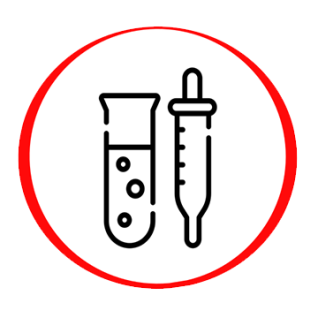Blood take service 5.00€

Lithium
20.00€
The validity period of online orders: 3 months from the purchase date.
Lithium test – this is a laboratory blood test designed to determine the concentration of lithium in the blood. Lithium is a chemical element often used as a medication for bipolar disorder and other mental illnesses. Šis test helps ensure that the lithium level in the patient's blood remains within the therapeutic range, which is necessary for effective treatment while avoiding toxic effects. The test is important because the proper lithium level can help stabilize mood and improve the overall mental condition of the patient.
Purpose of the test
The lithium test helps evaluate whether the lithium level in the patient's blood is appropriate for treatment. It is necessary for diagnosing and monitoring the effectiveness and safety of the medication. Excessive lithium levels can cause toxic effects, while too little can result in insufficient therapeutic effect. Šis test is often recommended for patients with bipolar disorder, depression, or other mental illnesses when lithium is prescribed as a medication. Additionally, the test may be performed regularly to ensure stable and safe lithium levels.
Symptoms and indications
The lithium test is usually prescribed for patients who are already taking lithium preparations. Symptoms that may prompt a doctor to perform this test include mood swings, confusion, muscle weakness, thirst, frequent urination, or stomach disturbances. Such symptoms may indicate lithium overdose or insufficient dosage. Furthermore, the test may be performed as a preventive measure for patients taking lithium long-term to prevent unwanted effects.
Test procedure
The lithium test is performed by taking a blood sample from a vein. Special preparation before the test is usually not required, but it is important for the blood draw to be performed approximately 12 hours after the last lithium dose. This allows for the determination of a stable lithium level in the blood. The test results are usually ready within a day or two.
Interpretation of results
The normal lithium level in the blood is typically considered to be within 0.6-1.2 mmol/L. If the level is lower, it may indicate that the lithium dose is insufficient and requires adjustment. If the level exceeds the norm, it can cause toxic effects such as nausea, vomiting, coordination disorders, or even more severe neurological symptoms. It is essential to consult a doctor if the test results do not match the norm.
Health significance
The lithium test is extremely important for patients taking lithium preparations as it helps ensure that the treatment is safe and effective. Continuous monitoring of lithium levels allows for the prevention of potentially dangerous overdoses and ensures that the patient receives the maximum therapeutic effect. Moreover, regular testing can help timely detect and prevent potential complications, ensuring better quality of life and mental health for the patient.

Reference: 15955
20.00€






